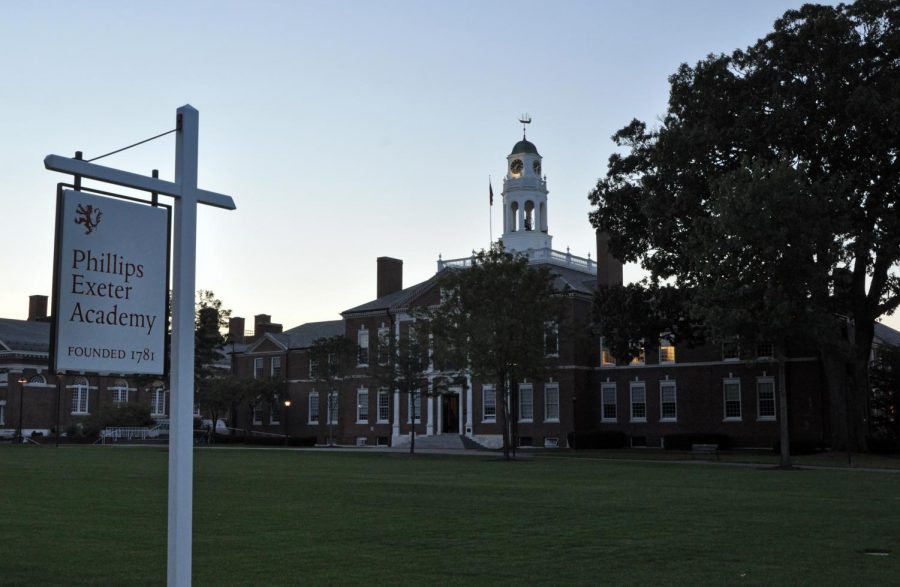Elite academy reinvents teaching styles
Phillips Exeter Academy, founded in 1781, sends a third of its students to Ivy League schools.
April 5, 2019
Phillips Exeter Academy in Exeter, New Hampshire is arguably the most elite prep school in America, with an endowment of over one billion dollars and a list of notable alumni that includes Mark Zuckerberg. Exeter’s website claims that the academy will “change your life” and seems to have made well on that promise. For over two hundred years, the academy has been churning out politicians, philosophers, Ebola fighters and NASA scientists.
Panchali Choudary started attending Exeter this year as a sophomore, and provided some insight into how exactly the school changes the lives of its students.
“We go more in depth,” Choudary said. “All of our learning is discussion based, so we really analyze topics.”
Choudary is describing the Harkness method, a style of teaching and learning originally developed at Exeter. The method requires no more than twelve students seated at a table engaging in open minded discourse about the course material with little interruption from the teacher.
“At first it was kind of strange, especially in math and science, but it’s actually a lot better because then you can really go in depth,” Choudary said. “It’s about understanding, not just memorizing everything.”
That’s where the distinction between a private school like Exeter and a public school like WCHS comes into play. The responsibility of learning is given back to the students, which allows them to extract deeper meaning from their education.
“If you don’t ask questions, the class doesn’t actually function. Exeter requires you to push yourself instead of the school actually pushing you to participate,” Choudary said. “You aren’t nudged by the teacher to speak. You can question anything and everything; it’s what you make of it.”
This environment that encourages inquiry and individualism is not always fostered in the public school system. Its current structure is little changed from the rigid “factory-model” classrooms that gave rise to the first public schools during the Industrial Revolution, which preferred efficiency over efficacy in education.
It’s easy for students in the public school system to shrug off the responsibility of their education, or to unintentionally do so by not participating, as student participation is not essential for largely lecture-based classes to function.
“I think the problem with public schools adopting this method is that there would be too many kids in a class for it to be effective,” Choudary said.
It is difficult to avoid large class sizes in public schools, which is the factor that most often keeps them stuck in the past.
However, large class size doesn’t impede everybody’s ability to learn, and neither do lecture style classes. Many students prefer note-taking and independent study in class over the extraversion that is required of the Harkness Method. After all, WCHS’ formula for teaching and learning creates high-achieving students who each year go on to attend top schools.
Comparing two vastly different, but highly regarded schools in order to determine the better one is a subjective process. The public school system does not work for every student, and neither does the Harkness Method. However, an education from Exeter Academy comes at a price tag that not many can afford, but an education from the number one ranked public school in Maryland is free.


